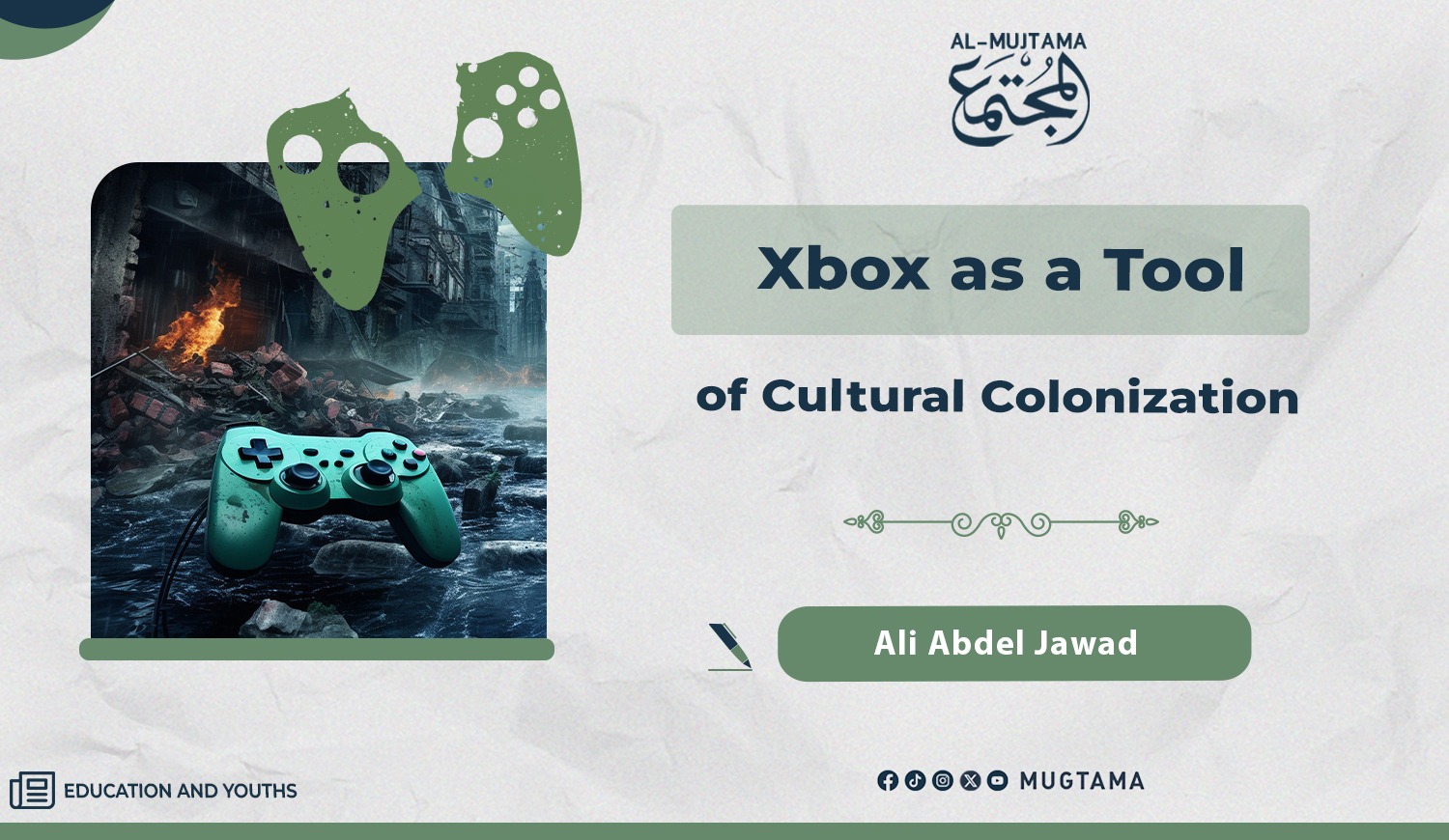Xbox: A Digital Colonizer of Arab and Muslim Youth Minds

Xbox and the Colonization of Youth Time
Gaming platforms—led by Xbox—have
occupied vast mental spaces among our Arab and Muslim youth, turning many into
virtual prisoners behind the walls of competitive gaming. These platforms have
become a form of digital addiction devouring countless hours, depleting mental
energy, and fostering social isolation. How many hours of life are wasted? How
many creative talents are locked behind control buttons?
With nearly 200 million monthly users, Xbox
and its partners are colonizing the minds of Arab and Muslim generations,
converting their free time into digital arenas that swallow time and reshape
priorities.
In Kuwait alone, posts about Xbox
have exceeded 940,000, and screens have become a blend of obsession and
identity—youth chasing hollow achievements while real-life accomplishments
decline and family interactions shrink, replaced by virtual shouts from gaming
headsets.
Do families realize that Xbox is no
longer just a game but a fierce rival stealing their children from under their
roofs? And are educational institutions aware that Islamic values are facing a
digital invasion redefining concepts of free time and entertainment? The hours
lost behind buttons are not mere minutes—they are a future sold on the market
of digital illusion!
Alarming Spread
Recent data and studies affirm the growing
prevalence of digital gaming—especially Xbox—in Arab societies and its
rising impact on youth. Key indicators include:
- A recent report revealed that the number of
gamers in the Middle East alone exceeds 377 million—comparable to the
population of Europe. In Saudi Arabia, gamers reach 21.1 million—around
89% of the population.
- Other estimates show the MENA gaming market
(including Saudi Arabia, the UAE, and Egypt) reached about 68.4 million
players in 2023, with ongoing growth expected.
- A recent Saudi study found that 63.1% of teens
(aged 12–16) play games daily, and 62.1% meet clinical criteria for gaming
addiction. This group also showed higher rates of anxiety, depression, and
attention deficits.
Xbox Leading the Scene
With booming growth in the digital gaming
sector, the regional market value hit $7.45 billion in 2023, with projections
surpassing $5 billion this year alone.
Xbox has had the most
significant influence in shaping youth digital entertainment culture in the
Arab world. It combines global popularity with innovative features such as
virtual reality and cloud support, drawing young people into extended
engagement.
Global stats point to over 200 million
active monthly Xbox users worldwide. The Xbox 360 alone sold over
85 million units, and by the end of 2024, the new Xbox Series X/S
reached over 27 million owners.
Social and Psychological Impacts
Studies indicate that excessive gaming
negatively affects students’ time management, often causing neglect of
schoolwork or family interactions. Intensive gaming may hinder the development
of new skills requiring focus and analysis, thereby reducing meaningful
engagement.
Extended attachment to games can isolate
children from their parents and family. Research shows that family interaction
is notably lower among gamer kids, sometimes leading to family breakdown and
erosion of social values. Some gaming-addicted children even display
controlling behaviors toward parents or commit minor domestic offenses.
Games containing visual or interactive
violence pose further dangers. Exposure to violent content may lead to
aggressive or irritable behavior among youth. It fosters impatience and
aggression toward family and peers. Long screen hours also result in poor
social engagement, higher stress levels, and irregular sleep habits.
Immersion in digital gaming delays the
development of essential behavioral and social skills—like interacting with
others and accepting differences. Experts suggest it can weaken teens’ ability
to understand and respond to the real world, harming both educational and
professional performance. This may result in a generation lacking cooperation,
constructive dialogue, and ethical conduct.
Practical Solutions
Given the surge in gaming—especially Xbox—and
its impact on youth, it's crucial to regulate gaming time within a balanced
daily schedule. Parents must set reasonable time limits and encourage selection
of educational or constructive games. Participation in competitions that build
skills is also recommended.
Experts advocate for shared family gaming
sessions—such as puzzle challenges or educational games—which help strengthen
family bonds and allow parents to monitor content effectively. This can foster
Islamic values like honest competition and mutual respect.
Finally, youth should be encouraged to
explore healthy alternatives—sports, arts, or volunteering—which nourish both
body and mind while reducing excessive gaming dependence. Their passion for
tech can be redirected into beneficial pursuits like coding or game design,
turning entertainment into an opportunity to develop talent, build
responsibility, and strengthen self-control. In this way, digital games become
tools of empowerment rather than traps of illusion.
Read Also: “Brain
Rot”: The Digital Plague of Our Time
-------------------------------------------------------------
Sources:
- Al-Sharq – Jaber Al-Harmi, “Electronic Games: A
Danger Devouring Youth Minds” (Dec 15, 2024)
- Alyaum (Saudi), “Skinner Box: Brain Manipulation
Through Games” (May 6, 2025)
- Al-Watan (Algeria), “Electronic Games: Dangers
Threatening Children” (July 8, 2017)
- Altibbi, “Harms of Electronic Games on Children”
- PG Connects – Riyadh, “The MENA Region” (2022)
- ResearchAndMarkets, “Games Market Report – Saudi,
UAE, Egypt” (2024)
- Cureus (Saudi Psychology), “Prevalence of Video
Game Addiction” (2023)
- DemandSage, “Xbox Statistics 2025” (Dec 2024)
- Grand View Research, “Middle East Gaming Market
Trends” (2024)










